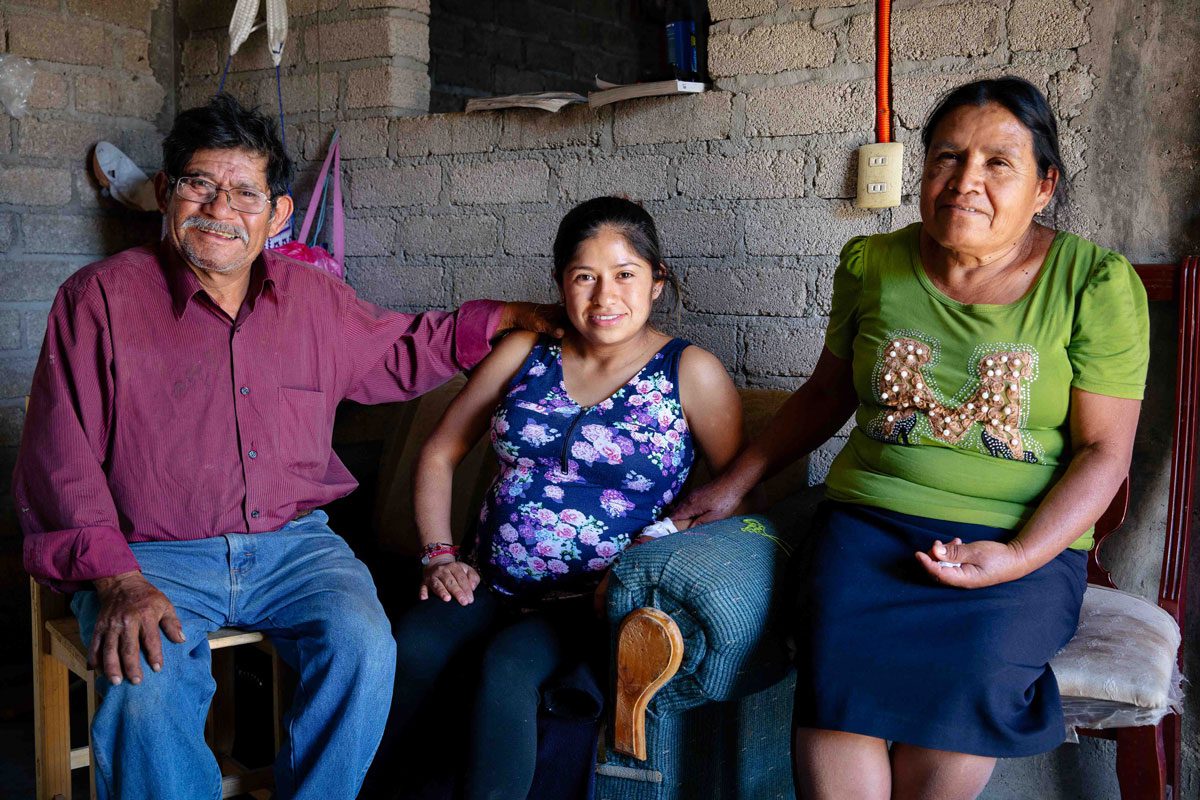Family First
“Sometimes I feel a bit bad living with my parents. I’ve been wanting to start working while I’ve been pregnant to start earning my own money because my partner and I don’t have our own house of our own yet because we’re still young. But, my mom tells me to relax.”
Edith sits between her parents Margarita and Clemente on a blue armchair. At seven months pregnant, she is feeling a bit tired and more uncomfortable.
Margarita is doing all she can to keep her daughter focused, “I want her to concentrate on her pregnancy to have it right, not to become too stressed about the money. I just tell her to calm down, ‘it’s just your dad and me here; you’re not a burden for us.’ But, I [understand] the pressure to provide for herself and her kid as well.”
Both Margarita and Clemente were born and raised in this small indigenous Mixtecan community nestled in the steep mountains of Oaxaca, Mexico. It’s also where they raised their six children, including Edith, their youngest.
Experiencing Marginalization and Barriers to Access
Facing severe discrimination in larger cities, many indigenous Mixtecan communities, including Margarita and Clemente’s, have made the rural mountains home. The remote terrain limits access to resources, financial opportunities, and food.
“We only grow four foods for ourselves: beans, corn, chilacoyate [a type of squash that is common in Mexico], and zucchini. We can’t grow too much because of the scarce water,” expressed Clemente.
This harsh climate presents various challenges for the community, including the increased risk of malnutrition. The lack of vitamins and minerals poses a significant threat for pregnant women and children who need the nutrients to support proper growth and development. It’s a concern that was top of mind for Clemente when he learned of Edith’s pregnancy. A grandfather to seven already, he understands the importance of proper health and nutrition during this vulnerable stage of life.
“When the mother is in bad health and malnourished, kids can’t develop the most and might not reach their potential. They even can be underdeveloped. I want to have the advantage of health for my grandchild,” shares Clemente. Despite community resources posing more barriers than access, Clemente and Margarita were determined to ensure their daughter got what she needed.
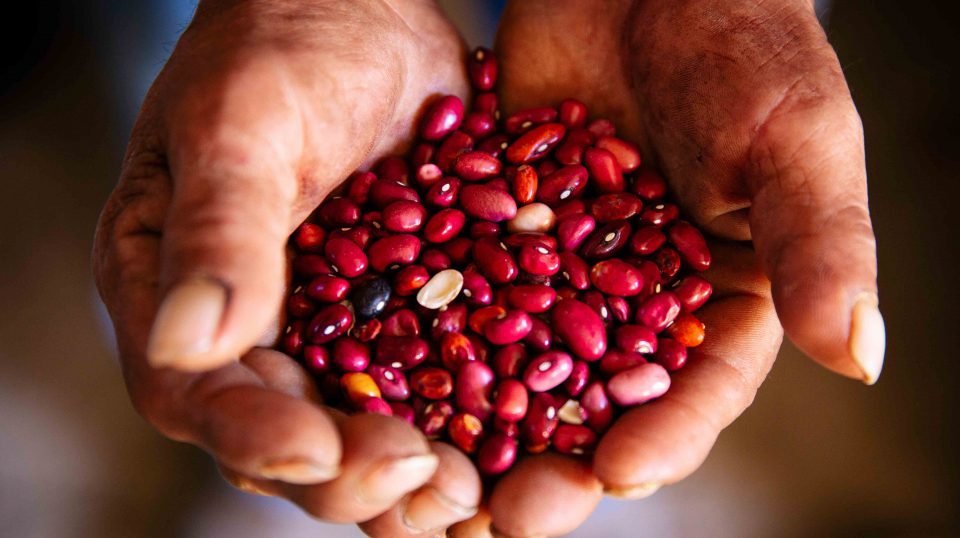
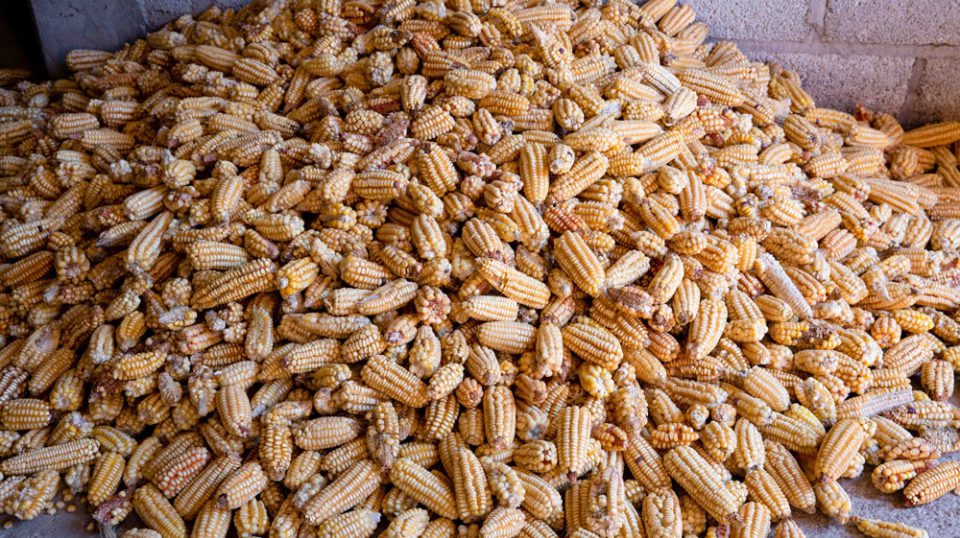
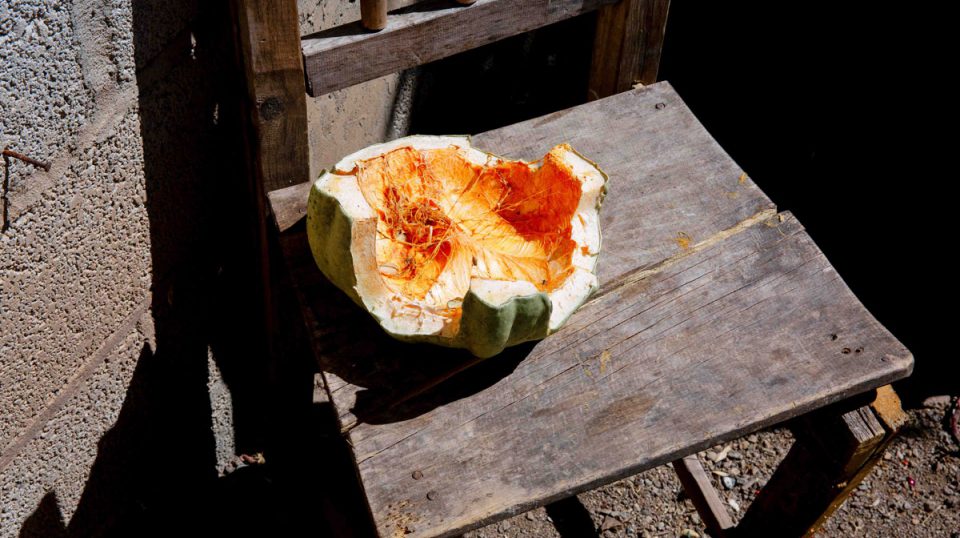
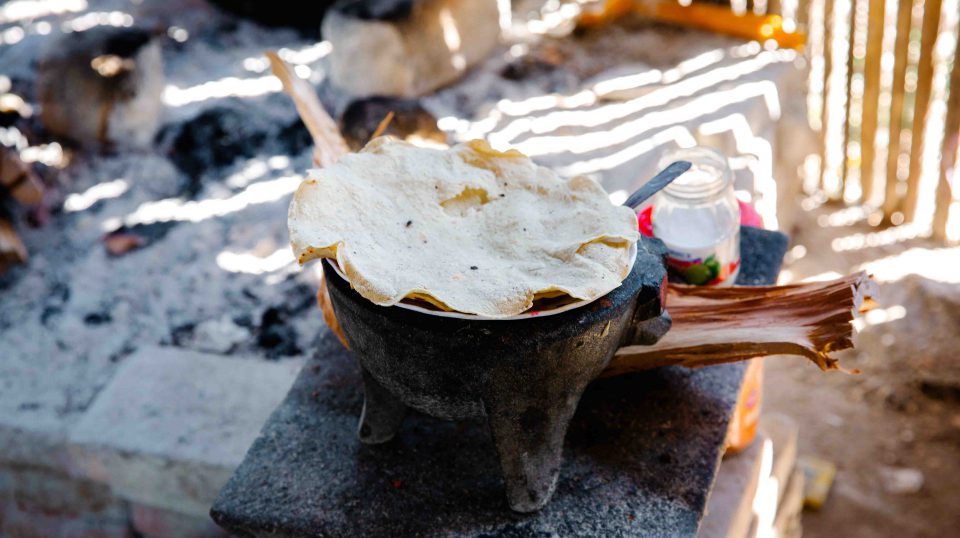
Taking Steps Toward Closing the Nutritional Gap
As soon as Edith found out she was pregnant, she walked with her mother to the one and only health center in her community, Casa De Salud.
Many Mixtecan communities have limited – if any – access to health and nutrition services. Even if a community has access to a health center, it may not be reliably equipped with all the resources needed to support its patients. A majority of the communities rely on health campaigns or government distributions that occur sporadically throughout the year.
Aware of the gaps of nutrition prevalent in these populations, Luz Maria Valentin founded Fundacion Luz Para Oaxaca [Light For Oaxaca Foundation] in 2010. With a mission to promote a better quality of life for her Oaxacan community and society at large, the organization provides access to food, health, education, and social security to populations in poverty and extreme poverty, especially women and children.
Since 2018, Luz Para Oaxaca has partnered with Vitamin Angels – in collaboration with Mexico Program Advisor, Dr. Enrique Rios – to add prenatal vitamins and minerals to their repertoire of resources. This intervention, provided at no cost to the mothers, supports improved health and birth outcomes for women living in communities experiencing marginalization. Together, the partners provide both prenatals and training to various health community workers including Edith’s clinic, Casa De Salud, in order for pregnant women to receive trusted and accessible localized resources and education as early as possible in their pregnancy.
Over a decade after Luz Para Oaxaca was born, Luz Marie Valentin’s vision to create a stronger society for women and children is thriving. And, is the main reason why Edith had the opportunity to receive free prenatal vitamins and minerals, options for antenatal care, and nutrition information the day she walked into Casa De Salud.
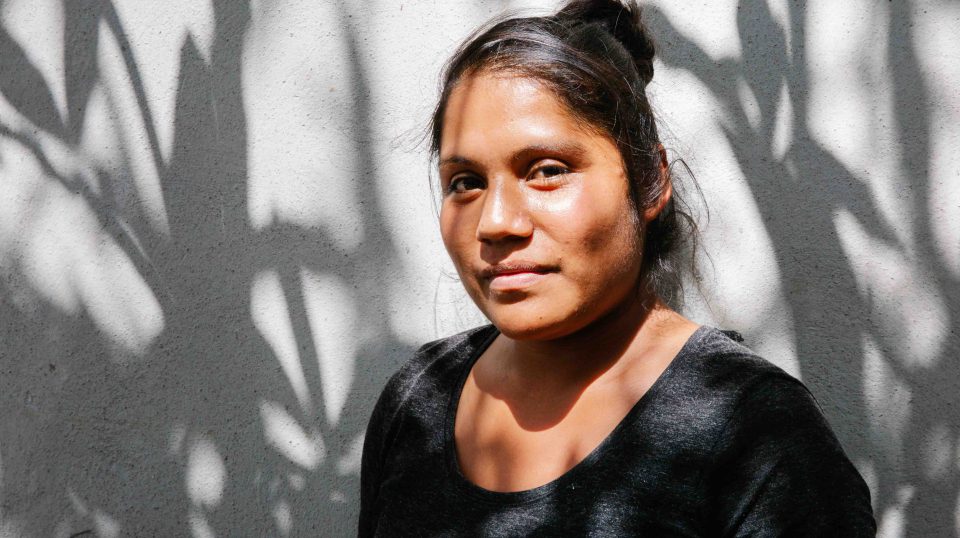
What hurts children and women today will hurt society tomorrow.
Luz Maria Valentin, Late Founder of Fundacion Luz Para Oaxaca
A Healthy Pregnancy Within Reach
Four months after that initial visit, the expecting mother rubs her stomach, “I’ve been feeling the baby kick lately.” Edith and Margarita had just gotten back from a doctor’s appointment. They received a positive report that everything looks good. “The baby was hiding during the ultrasound, so we don’t know if it’s a boy or a girl yet,” Edith shared. My husband is excited. He wants to know what it is…We just want our baby to be healthy. Because when they get sick, it’s when it becomes the most expensive for us and the most stressful for moms. My biggest wish is for him or her to be born healthy.”
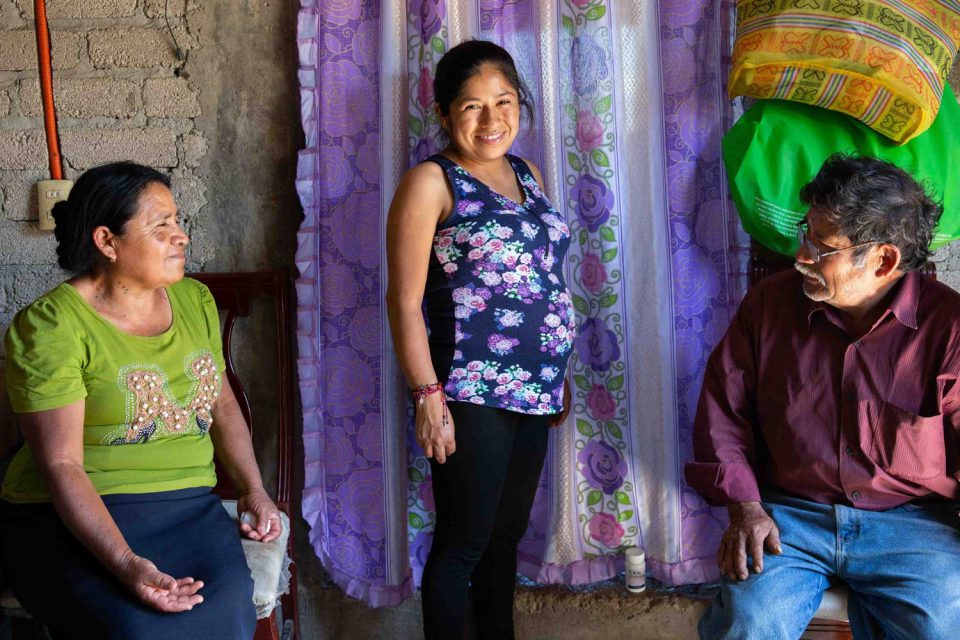
The Future Depends On Maternal Health
Moms nurture the future and bring it into being – and that’s made possible through the foundation laid by generations before her, a community around her, and a world willing to advocate with her.
That’s why we continue to fight for a world where every mother has a healthy pregnancy and every child gets the chance to thrive.
Spotlight: Mexico
Globally, and in Mexico, maternal micronutrient deficiency is a public health problem due to the increased nutrient requirements that occur during pregnancy. This can have negative consequences for both the mother and child, leading to adverse pregnancy outcomes.
Efforts are currently underway to engage key national stakeholders to discuss exploring a transition from iron and folic acid supplementation, the standard, to MMS.
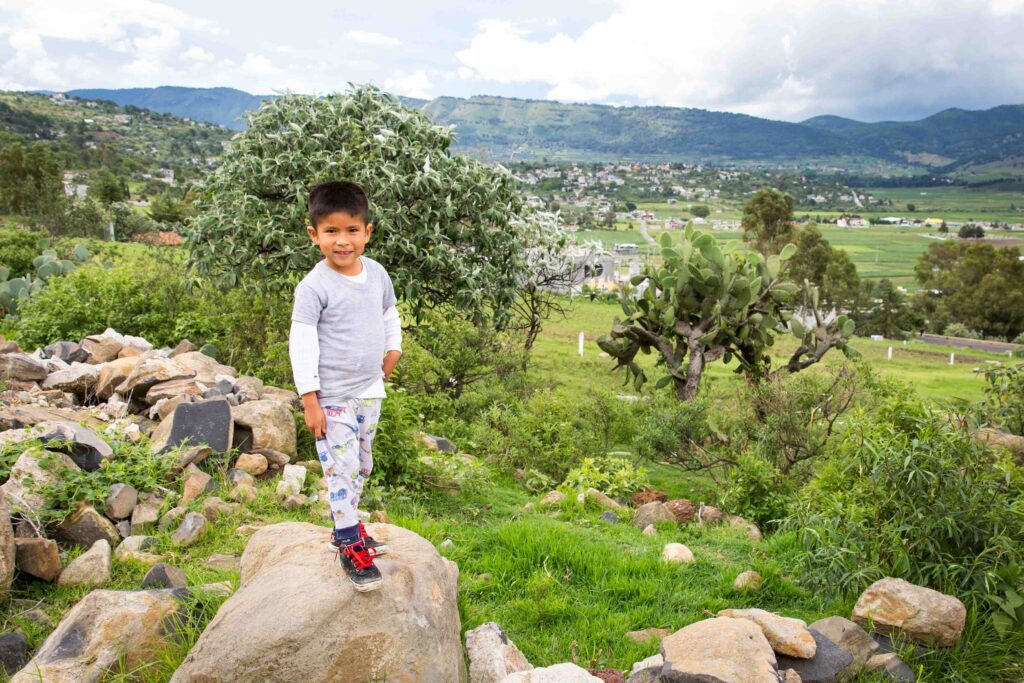
Did You Know?
In Mexico, nearly 20% of pregnant women are anemic and 8.2% of babies are born with low birth rates. Due to the increased nutrient requirements that occur during pregnancy, deficiencies can lead to adverse pregnancy outcomes with negative consequences for both the mom & child.
Did You Know?
In Mexico, Vitamin Angels and program partners have reached 212,000 women with prenatal vitamins and minerals, also called Multiple Micronutrient Supplements (MMS). MMS play an essential role in meeting a woman’s increased nutrient demands during pregnancy.
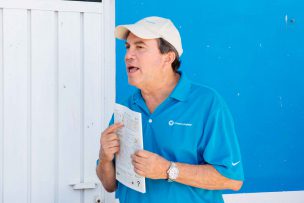
Did You Know?
Vitamin Angels’ Mexico Program Advisor, Dr. Enrique Rios, leads strategic efforts with the national government and NGO network to improve the nutritional status of women and children in Mexico. He also engages with national stakeholders to advocate for improving the standard of care for all pregnant women.
Did You Know?
Underserved communities in 18 states receive Vitamin Angels’ MMS for pregnant women and vitamin A and albendazole for children under five.

